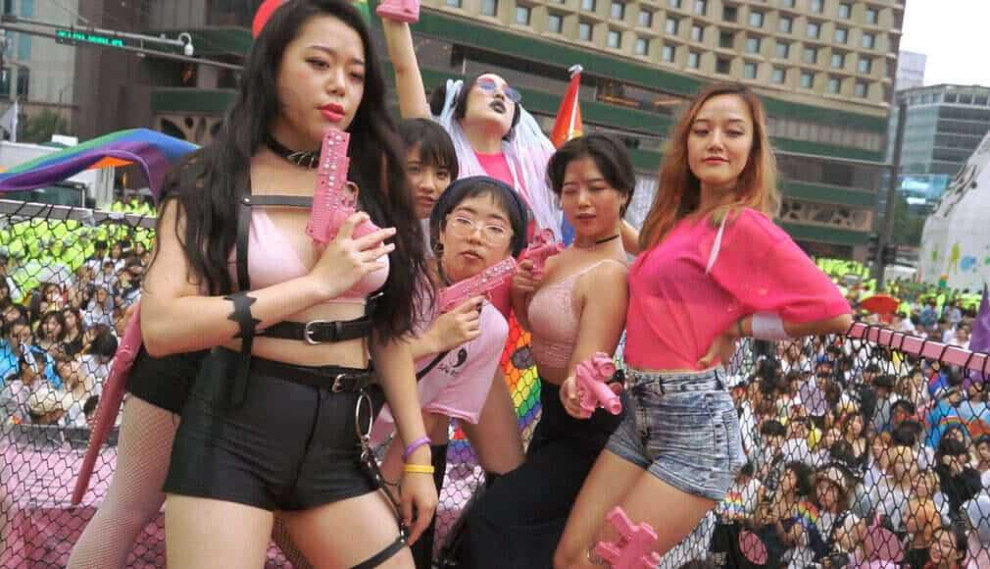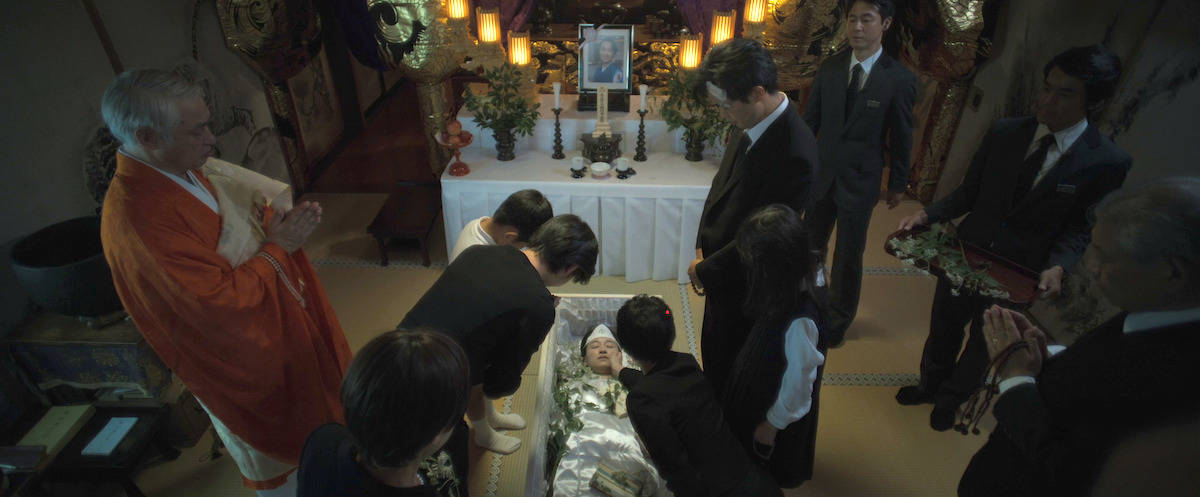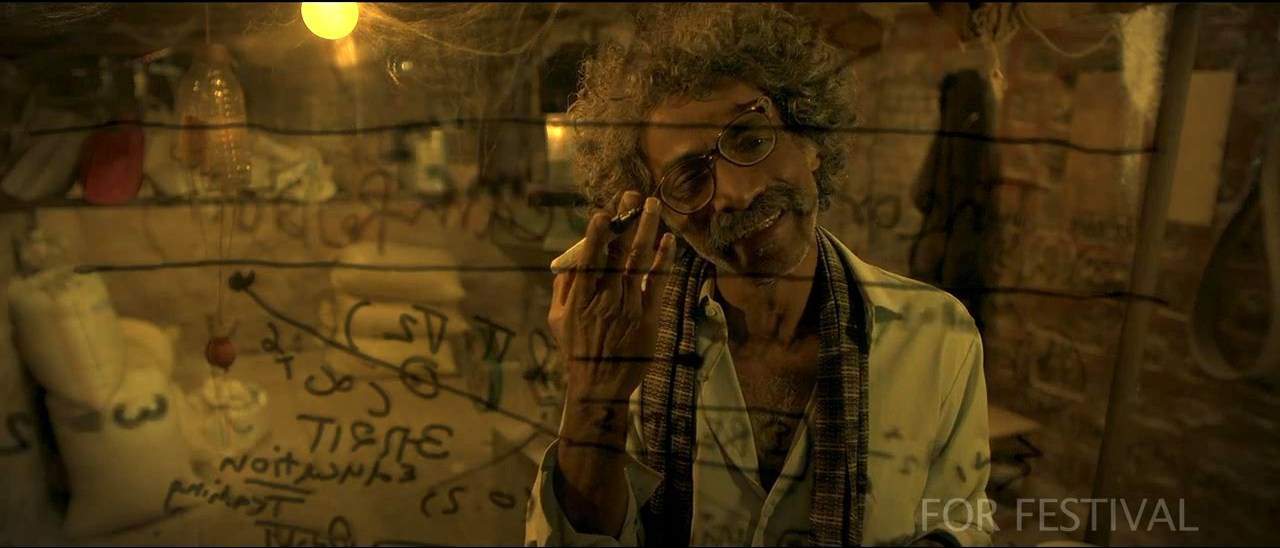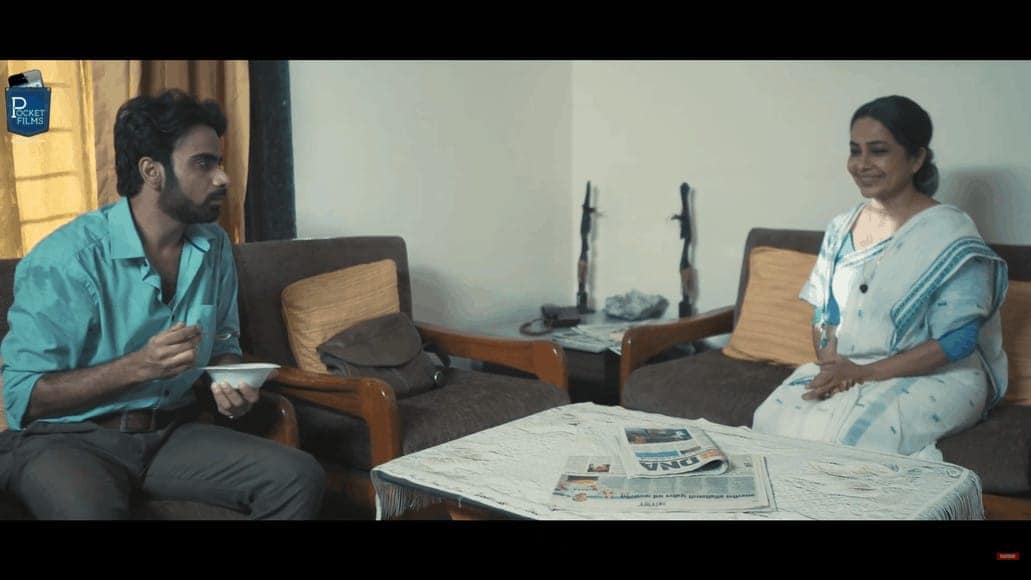Update: “Us, Day by Day” (Kangyu Ga-ram, 2019) won the Best Korean Film prize at SIWFF.
The 21st Seoul International Women's Film Festival witnessed two feminist documentary world premieres in their Korean Features Competition. While both features aptly frame the current-day Korean feminist movement, they depict individual actors in vastly different stages of life. SIWFF first-timer Jeon Sung-yeon captures the youthful energy of undergraduate feminist group FemiDangDang with “The Fearless and Vulnerable.” On the other hand, experienced activist-filmmaker Kangyu Ga-ram interviews her old college-year, feminist friends in “Us, Day by Day.”
Us, Day by Day and The Fearless and Vulnerable screened at Seoul International Women's Film Festival

“The Fearless and Vulnerable” kicks off with a slick introductory sequence: an in-your-face montage of social media posts and news reports revolving around the recent abortion punishment ban. The intro snowballs into explosive footage of the FemiDangDang's Pride Parade, oscillating between their confident public image in 4K to raw home video about their individual worries of isolation and acceptance. This mish-mash of behind-the-scenes footage and on-screen publicity knits together a graduation film for not just director Jeon, but for the FemiDangDang as well. The ongoing conflict between political sustainability and personal friendship is set to a ticking time bomb, as impending university graduation threatens to dissolve the group.
“Us, Day by Day,” on the other hand, observes much older feminists well-immersed in their work lives. The work is varied, including a cosmetics marketing manager, a veterinarian, the head of a feminist medical co-op, a Jeju orange farmer, a Seoul-based activist leader, and an indie musician. For this group of friends, feminism is not a movement. It is a way of life. In a series of cameos, the women hammer it home that their age spells not the end, but the beginning of training a new generation of feminists.

SIWFF Q&A sessions noted thematic similarities between the two documentaries. Packed theatres full of fans and activists alike cross-referenced the other film, especially during the second screening of “Fearless and Vulnerable” – which directly followed “Us, Day by Day”‘s premiere. As one panel moderator laughingly joked, “the FemiDangDang could solve their anxieties about the future from watching ‘Us, Day by Day.'”
The similarities only go so far, however. While both documentaries feature circles self-proclaimed feminists, their definitions of feminism are radically different. For the FemiDangDang in “Fearless and Vulnerable,” feminism is a political means. In spite of their ceaseless arguments and anxieties, they relentlessly work towards one goal: the legalization of abortion in Korea. Their spectacular stunts, though – such as setting up a public vending machine dispensing fake abortion pills – threatens their friendships at the same time. The individual members constantly compromise their political disagreements head-on, struggling to create a unified image despite their own dissonance.

The seasoned feminists of “Us, Day by Day,” however, wrestle less with the law than with themselves. Unlike the FemiDangDang, the absence of the Internet introduces a new struggle: of trying to find a visible feminist community to connect to after graduation. After all, for these women, feminism is not just a public activity. Feminism is a set of beliefs that guides their day-to-day. Like lost sheep looking for their herd, their interviewees search for a community to share their interests. Though still more leftist and radical than American interpretations of popular feminism, Kangyu's friends try to manifest their politicized interests into the routine work grind.
Beyond contextual themes, the documentaries too take different approaches. For “Fearless,” director Jeon remains a silent admirer, a quiet outsider who peers with the audience into the FemiDangDang's grand schemes. On the other hand, director Kangyu – a cog in her feminist hub – presents a more personal, cathartic journey instead. She re-realizes her own identity as a feminist through her friends, calling upon a self-exploratory technique more akin to Kwon Woojeong's in-competition entry, Tiptoeing. Though “Us, Day by Day” interrogates different lifestyles, it is ultimately about the director's own peace with feminism.

All things considered, the documentaries are captivating insights into the contemporary Korean feminist movement. Their reception was equally warm as well; welcomed by a full house of fans, fellow feminists, and curious observers, both films appealed to an excited audience a-buzz with questions. After all, both films are pretty exciting. They both underscore the importance of solidarity: of finding a core community (or at least a supportive group of friends) to advance women's rights.
You can follow the FemiDangDang through their Twitter (@femidangdang) and Facebook page. Trailers for both films can be found below.















